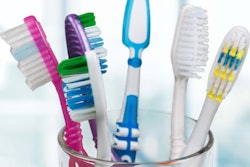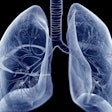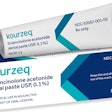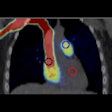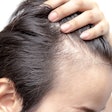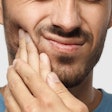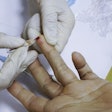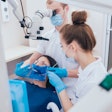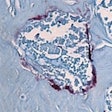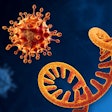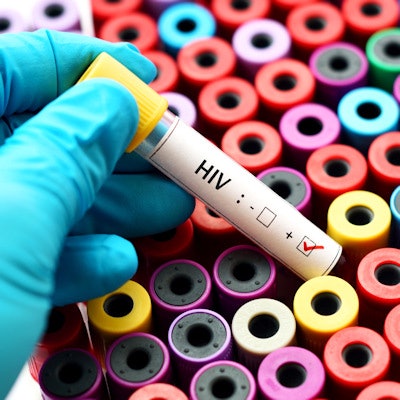
HIV on its own does not increase the risk of children getting caries. Instead, a weakened immune system, stemming from other diseases, affects cavity prevalence, according to a study published on July 2 in Scientific Reports.
Low levels of cluster of differentiation 4 (CD4), a glycoprotein found on the surface of immune cells, persistently alter the oral microbiota during early development, regardless of HIV infection or exposure, suggesting that immune status drives caries risk.
"Oral microbes maintain a delicate balance during health but this balance might be compromised with immunosuppression leading to conditions (like dental caries) that could manifest in the oral cavity," wrote the authors, led by Modupe Coker, PhD, an epidemiologist in the oral biology department at Rutgers School of Dental Medicine.
HIV infection and immunosuppression have been linked with increased inflammatory markers, including oral diseases such as caries, in children and adults. It has also been suggested that the reduction of CD4+ T lymphocytes might lead to the conversion of Candida to a pathogenic state, thereby disrupting the oral microbiota. Antiviral treatments have led to significant, consistent drops in oral manifestations related to HIV; however, there is no clear understanding of the link between the infection and its heightened risk of dental caries and other periodontal diseases.
To better understand the relationship, the researchers analyzed saliva samples taken from 286 children ages 6 or younger using 16S ribosomal (rRNA) gene sequencing. The children were grouped into three categories: those who were infected with HIV, those who were perinatally exposed to HIV but were uninfected, and those who were not exposed to HIV and were uninfected. Blood samples were also used to measure their white blood cell counts.
HIV-positive children with normal immunity levels, likely due to successful antiviral treatments, had lower cavity prevalence. However, HIV-negative children who were immunocompromised due to other diseases or underlying conditions were more likely to have caries, according to the authors.
Of the 94 participants who were unexposed and HIV-negative, about 89% of them had CD4 levels greater than 20%. About 71% of the 94 HIV-positive participants had CD4 levels greater than 20%. Six of the HIV-positive children were not receiving antiviral treatments, and they all had CD4 levels above 20%, the authors wrote.
The study was not without limitations, including its cross-sectional evaluation, which prevented the researchers from observing and measuring clinical and environmental changes or accounting for intraperson variability over time. Studies that evaluate supragingival and subgingival plaque collection and viral load assessments for HIV-infected children while accounting for changes over time are needed, they noted.
"Although still in its infancy, our understanding of the immune-microbiota relationships is necessary for disease prevention and treatment," the authors wrote.






